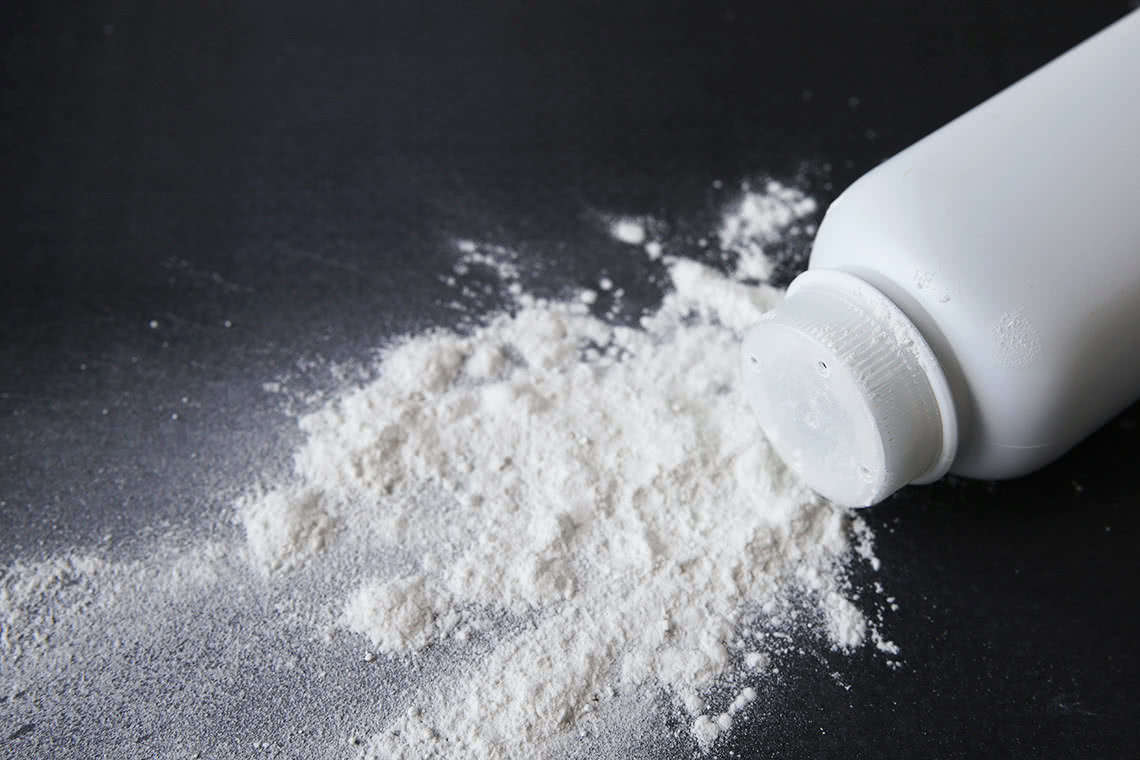
Morgan & Morgan is reviewing claims on behalf of women who developed ovarian cancer after using talcum or baby powder near the genitals.
Since 1971, more than 20 studies have linked talc powder to ovarian cancer, and, in 2003, an analysis of 16 of these studies found that women using talcum powder were 33 percent more likely to develop ovarian cancer. It has been alleged that Johnson & Johnson, the maker of popular talc-based powders, including Baby Powder and Shower-to-Shower, knew about the ovarian cancer risk since at least 1982, but failed to warn women using these products.
Does Talcum Powder Cause Cancer?
For decades, researchers have been studying the potential link between ovarian cancer and talcum powder. It is believed that talc powder, when used near the genitals, can travel to the ovaries and become embedded in the ovarian tissue. While talc is a natural mineral, it is very difficult for the body to remove the particles and, as a result, inflammation may occur and cancerous tumors may form.
The first publication to suggest that talc may cause ovarian cancer was published in 1971 in the medical journal The Lancet. In the study, researchers discovered that a majority of ovarian tumors had talc particles “deeply embedded” in them. Then, in 1982, researchers found that women using talcum powder during ovulation were at a 92 percent increased risk of developing ovarian cancer. During the next three decades, an additional 21 studies were performed on talc powder, and almost all of these studies found that women using these products near their genitals were at an increased risk for developing ovarian cancer.
To date, both the National Cancer Institute and the American Cancer Society consider talc use near the genitals as a “risk factor” for ovarian cancer. Despite this possible link, Johnson & Johnson and other talc powder manufacturers have not placed warnings about this risk on their products.
Have Lawsuits Been Filed Against Johnson & Johnson?
It is believed that talc powder, when used near the genitals, can travel to the ovaries and become embedded in the ovarian tissue.
Yes. Johnson & Johnson is facing a number of individual lawsuits filed by women alleging that the company failed to warn women about the risk of developing ovarian cancer when using these products near the genitals. Individuals are suing for damages related to things like medical bills, lost wages, pain and suffering and, in the event of death, funeral expenses.
Big Individual Victories in the Fight Over the Link Between Talc Powder and Ovarian Cancer
Individual women suing Johnson & Johnson have secured some major victories in their fight against the company over its claims about talc.
$70 Million: In October 2016, a Missouri jury ordered Johnson and Johnson to pay Deborah Giannecchini, 62, $70 million dollars in damages, because they agreed that her frequent use of the companies talc powder caused her ovarian cancer, according to Bloomberg News. The California women was diagnosed with ovarian cancer three years ago after using Johnson and Johnson’s talc powder for more than four decades.
$55 Million: In May 2016, Gloria Ristesund was awarded $55 million by a Missouri jury because they agreed that her ovarian cancer was caused by her frequent use of Johnson & Johnson’s talc powder. Although she was already at risk of ovarian cancer because she suffered from endometriosis, her attorneys argued that her use of talc powder increased her chances of developing ovarian cancer by 200 percent.
$72 Million: In February 2016, the family of a Jacqueline Fox was awarded $72 million after a jury agreed that her daily use of Johnson & Johnson’s talc powder over the course of 35 years caused the ovarian cancer that killed her. The jury award $10 million for actual damages while the other $62 million, one million for each year of her life, was awarded for punitive damages.
A major initial victory for individuals suing Johnson & Johnson dates back to 2013, when a jury found that Johnson & Johnson should have warned women about the risk of developing ovarian cancer when using its talcum and baby powders near the genitals. In that case, the plaintiff alleged that she developed ovarian cancer after using Johnson & Johnson’s talc-based Baby Powder and Shower-to-Shower products for nearly 30 years.
According to the lawsuit, Johnson & Johnson knew about the link between talc powder and cancer since as early as 1982, when a landmark study found that women using these products as hygienic powders were at a 92 percent increased risk of developing ovarian cancer.
Individual Suits Are Different from a Class Action
There has also been a class action filed against Johnson & Johnson over the talcum powder, but women who allege they have contracted cancer from talc might want to consider filing their own, separate suits.
The big difference is that with the individual suits women have pursued compensation for medical bills, pain and suffering, and lost wages, among other things, but those who are part of the class action are suing for only recovery of the cost of the product, regardless of existence of a cancer diagnosis.
How Much Does an Attorney Cost?
At Morgan & Morgan, our class action attorneys work exclusively on a contingency-fee basis. This means that our attorneys will only get paid if they resolve your case favorably, whether with a settlement or jury award. Typically, if a case settles before going to trial, your attorney receives a reasonable percentage as a fee. If we are unable to settle your case for the amount you deserve, our attorneys will continue their pursuit of your compensation in court for a reasonable percentage.
If you or someone you know developed ovarian cancer after using talcum or baby powder, our attorneys would like to speak with you. You may be able to file a lawsuit against the company that manufactured the powder you used. For more information, contact us today for a free consultation.